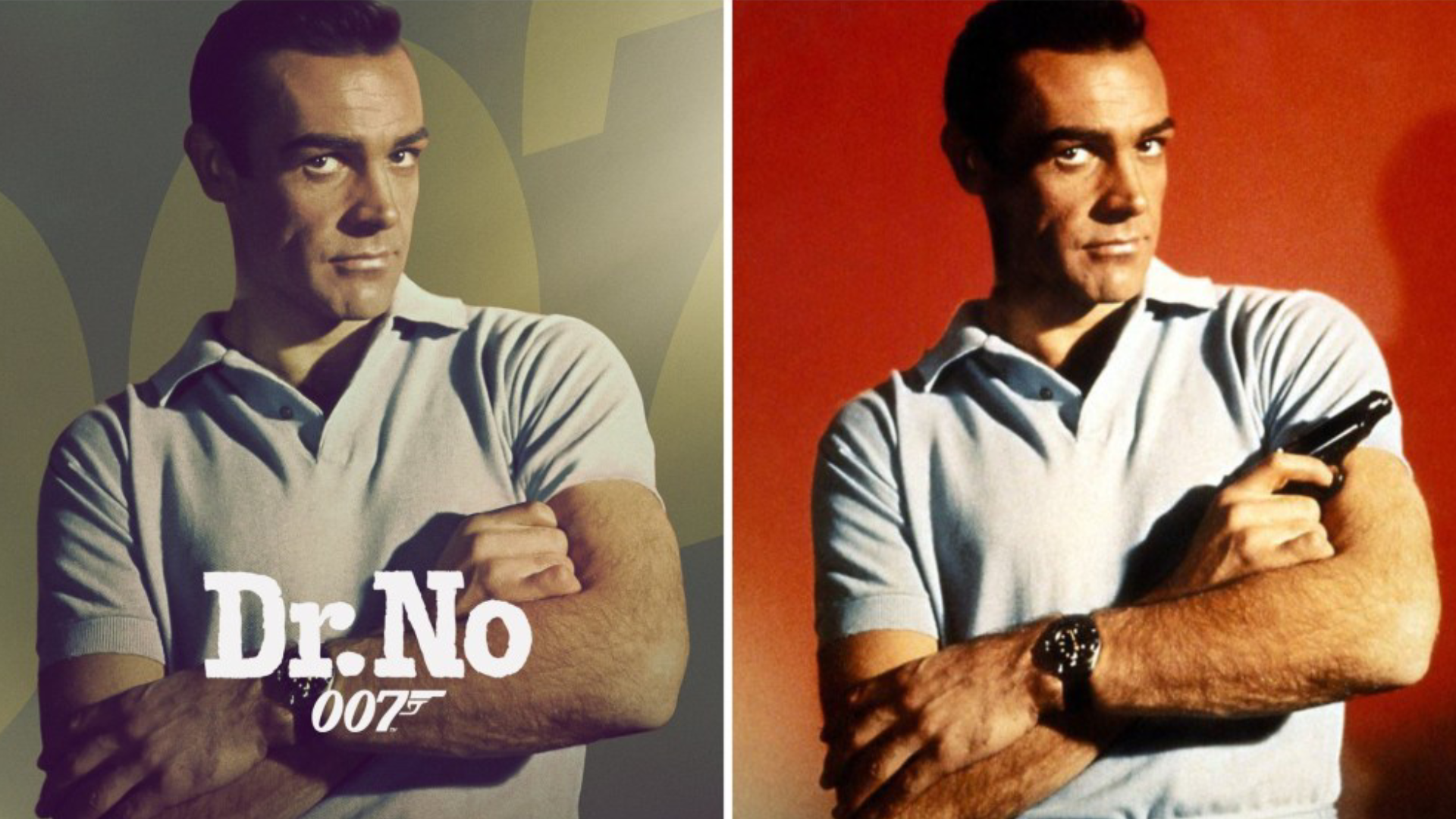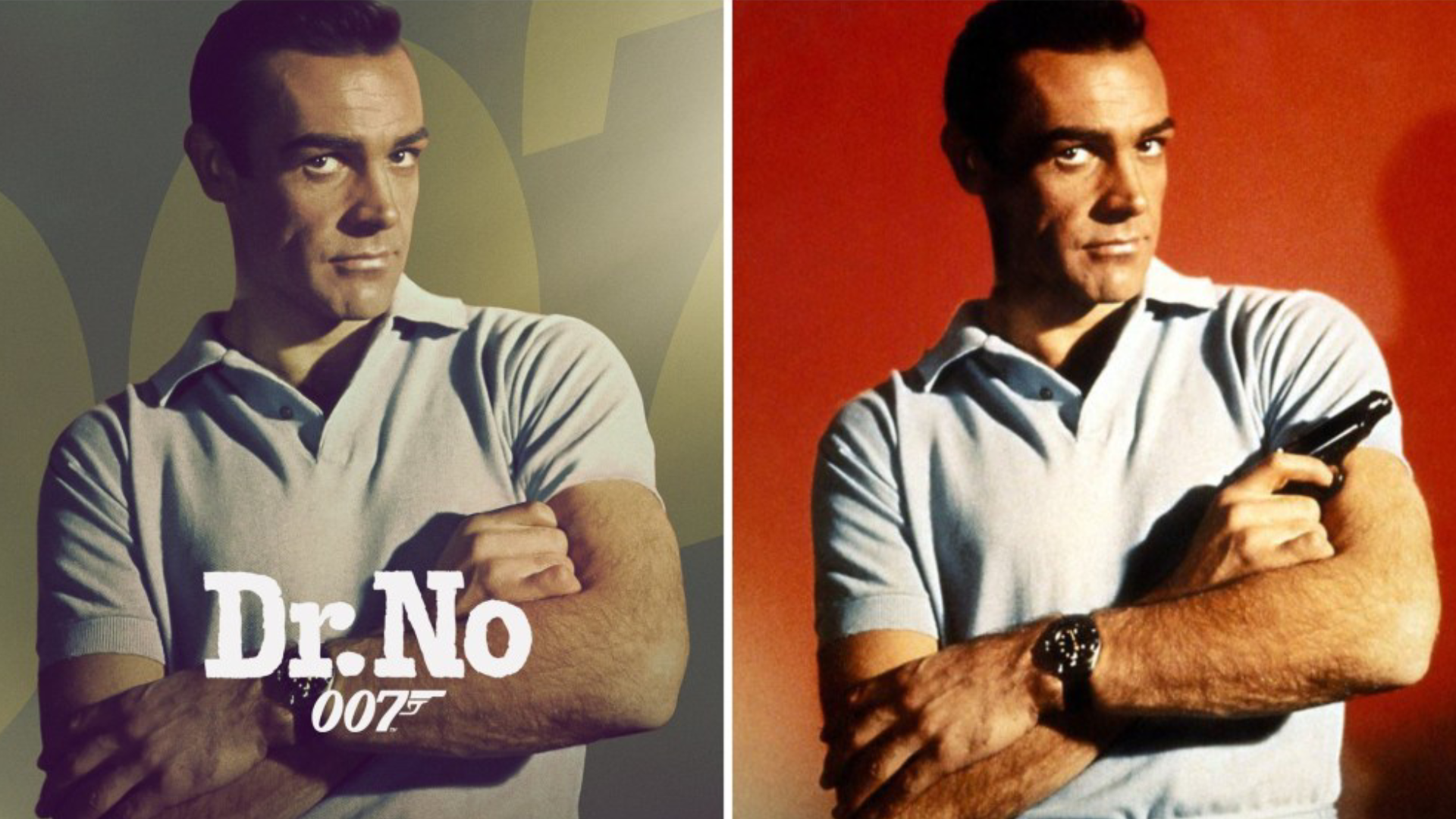The Man with(out) the Golden Gun

Ian Fleming's James Bond/007 franchise of spy thrillers, most prominently its decades-spanning movie series, is known for their continously recurring tropes – mainly amazing intros, over-the-top stunts, shallow romance subplots and unrelenting fight scenes.
Especially the latter have both contributed to its popularity and caused concerns over excessive on-screen violence. In an apparent attempt to de-emphasize this part of the Bond formular, new IP rightsholder Amazon has recently replaced artwork for the films with censored versions, drawing criticism from fans.
Censoring Promo Material
It's not uncommon for streaming services to use edited versions of existing marketing material of movies when making them available on their platform. Since the menu icons and preview windows on apps and websites often use different resolutions and formats than, for example, an old movie poster, cropping and photoshopping parts of images only makes sense.
But when Amazon Prime Video UK was reported in early October 2025, shortly before "James Bond Day" on October 5, to have debuted new artwork for its 007 collection, fans were outraged: The company had noticeably removed or cropped out Bond's recognizable firearm from posters of classics like Dr. No (1962), GoldenEye (1995), and Spectre (2015), prompting allegations of "cultural vandalism" against the company.
Consequently, on October 6, Amazon quietly withdrew or replaced the edited images after criticism intensified. They declined to explain the change, while new thumbnails showing stills from the films – sometimes still avoiding depictions of guns – appeared on the service. Just last year, the key art of the movie Full Metal Jacket had undergone a similar procedure, with the phrase "Born To Kill" written on the main character's helmet first being removed, then reinstated.
Diluting Franchise Identity
When Amazon bought MGM in March 2022 for about $8.5 billion, it inherited the distribution rights to the James Bond franchise, which were long co-owned by Eon Productions. In February 2025, the US-American megacorporation then finalized a deal with Eon which gave it full creative control over the intellectual property, causing fans to worry that the new rights holders would to try to "sanitize" the brand to give it a broader mass appeal.
The firearm-free Bond posters uploaded in October 2025 intensified those fears. Even when considering that changing the artwork didn't change the movie, online critics argued that stripping away the gun, a visual shorthand for Bond's license to kill, represented a misunderstanding of the character's core identity. The subsequent social media backlash reflected worries that the franchise's legacy may fall victim to marketing instincts.
Fans now fear this mindset could extend to future films, softening Bond's tone to suit safer, "brand-friendly" values. With Denis Villeneuve directing the next entry, some worry Amazon’s caution – especially over political correctness or violence – could compromise the Cold War era authenticity that has defined the series over the last decades of cinema history.


































